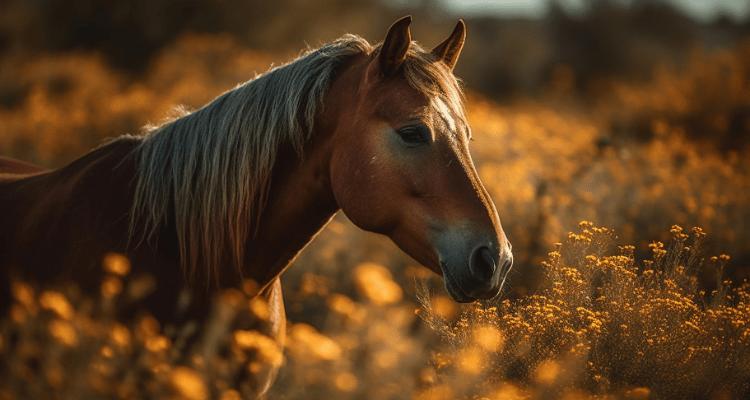
Call us Now ![]() +91-8744012053
+91-8744012053
Mon - Sat ~ 10:00 AM - 6:00 PM
Follow & Like
.png)


Call us Now ![]() +91-8744012053
+91-8744012053
Mon - Sat ~ 10:00 AM - 6:00 PM
Follow & Like
.png)



Do you ever wonder what keeps a horse healthy and active? It’s not just about regular exercise or grooming. Nutrition plays a vital role too.
Just as with humans, a balanced diet is key to a horse’s health. However, their nutritional needs sometimes go beyond the basics. That’s where supplements come into play.
But when exactly are supplements necessary in a horse’s diet? In this article, we’ll explore the role of supplements in equine nutrition and help you understand when they might be needed.
Horses, like us, need a mix of nutrients to stay healthy. But what does a balanced diet look like for a horse? Let’s break it down:
Understanding these basics is the first step in ensuring your horse gets the nutrients it needs. But sometimes, even a well-rounded diet may fall short.
Not every horse’s nutritional needs are the same. Factors such as age, health status, and workload can create specific dietary requirements. Here’s when you might need to consider supplements:
While a typical horse consuming a balanced diet may not require additional supplementation, specific conditions or issues may necessitate supplement use. A balanced diet for a horse should consist of high-quality forage, free-choice water, and salt.
In some cases, integrating a commercially produced feed or ration balancer into the diet can be beneficial. But if nutritional demands aren’t being met, the use of a supplement might be necessary to fill in the nutritional gaps.
A balanced diet typically meets a horse’s nutritional needs. However, when health conditions arise, certain nutrients become critical for maintaining your horse’s well-being. Evaluating your horse’s diet in tandem with understanding its health conditions can guide you in choosing the right supplements.
For instance, if your horse sweats often or excessively, an electrolyte supplement should be considered, particularly one where salt (NaCl) is the primary ingredient.
Let’s look at some specific health conditions that might require supplementation and the nutrients that can help manage them.
Remember, before starting any supplement regimen, it’s crucial to consult with a veterinarian or an equine nutrition expert to ensure it’s safe and beneficial for your horse.
Horses involved in strenuous activities, such as racing or eventing, generally require extra nutrients that a regular diet might not provide. The increased energy demands of high-performance work mean that these horses may benefit from specific supplements designed to meet their unique nutritional needs.
Pregnant or nursing mares have specific nutritional requirements that differ from those of other adult horses. These mares may need additional vitamins, minerals, and other nutrients to support their health and the health of their foals. Using the right supplements can help meet these increased demands.
By understanding when to supplement, you can make sure your equine friend gets the optimal nutrition it needs. Once you’ve determined that your horse may benefit from a supplement, the next step is to select the right one.
Venturing into the world of equine supplements can be overwhelming, but armed with the proper knowledge, you can make informed decisions. Here are some key considerations:
With these guidelines, you can confidently choose from the available supplements. But as you make your choices, keep in mind the potential risks of over-supplementation, which we will explore next.
While supplements can play a key role in equine health, overdoing it can have negative consequences. Here’s what to watch out for:
With the right knowledge and advice from professionals, you can make informed choices that benefit your horse’s health. Always consult a veterinarian and a qualified equine nutritionist before making changes to your horse’s diet.
Remember, supplements are not a replacement for a balanced diet, but a tool to enhance your horse’s nutritional health when necessary. The power lies in knowing when and how to use them effectively.
Wrapping Up
Understanding the role of supplements in equine nutrition is an important responsibility for every horse owner. Supplements can play a critical role, particularly when they are used thoughtfully and with a clear understanding of your horse’s unique dietary needs.
Veterinarians and equine nutritionists provide valuable insight into managing your horse’s dietary needs, including the right use of supplements. Their expertise simplifies the complexities of equine nutrition. With their guidance, combined with your dedication to your horse’s well-being, you can make informed decisions for optimal care, contributing to a healthier, happier horse.